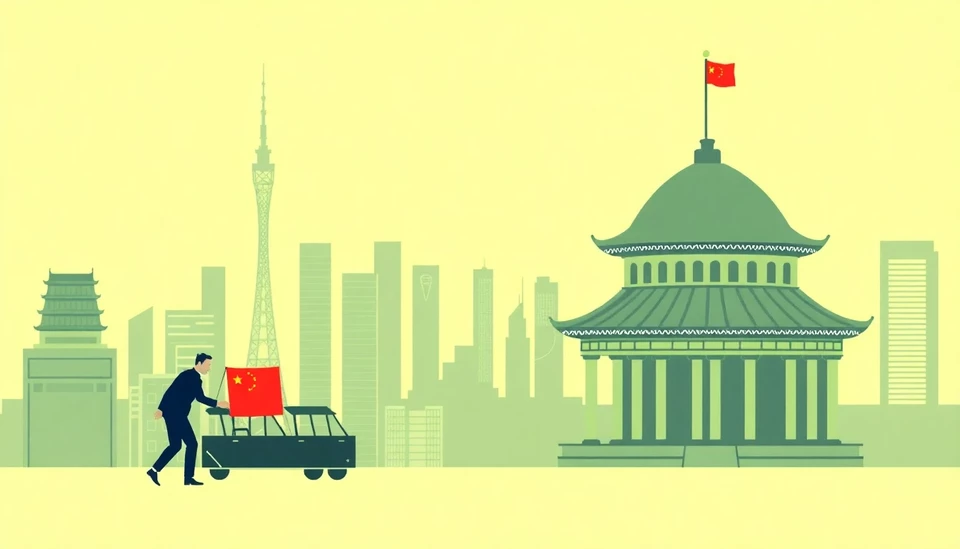
In a strategic maneuver poised to influence the global economic landscape, China is deliberately conserving its fiscal power in anticipation of continued trade tensions. This decision comes despite a noticeable lag in local government spending, which has raised concerns about the pace of economic recovery and growth within the country.
According to recent reports, while local governments have started to ramp up their spending efforts, the overall progress has been disappointingly slow. Data suggests that local government debt and expenditure have not kept pace with the soaring expectations set earlier this year. This stunted growth in local government spending highlights a potential bottleneck in the overall economic stimulus being implemented by the Chinese government.
China's leadership appears to be aware of this issue and is attempting to strike a delicate balance between fiscal spending and maintaining power for future negotiations, particularly in light of ongoing trade disputes, especially with the United States. By conserving fiscal resources now, China aims to position itself more effectively in its efforts to navigate the complex dynamics of international trade.
The Chinese government’s apprehension is further motivated by recent developments in the trade front that have created uncertainty for Chinese exporters and manufacturers. As competition intensifies globally, especially due to newfound tariffs and sanctions, there is a growing pressure to formulate a robust fiscal response that can provide immediate relief while also preserving strategic resources for potential conflict resolutions down the line.
Moreover, the central government has been encouraging local authorities to prioritize infrastructure projects, aiming to kickstart growth and boost employment. Nonetheless, the execution of such projects has been hampered by bureaucratic inefficiencies, lack of clear communication, and coordination challenges between different tiers of local governance. Observers note that this procedural inertia could stymie the intended economic boost, leading to delays in vital projects that support overall growth and development.
As the situation stands, the fiscal policy in China remains fluid, with government officials cautiously optimistic yet pragmatically restrained. The emphasis on saving fiscal power may suggest a deliberate long-term strategy to withstand potential fiscal pressures while strategically countering international challenges. The overarching question remains whether this approach will fortify China’s economic resilience or hinder its growth potential as the global landscape continues to shift dramatically.
With expectations for the economy in flux and trade uncertainties looming large, all eyes will be on how China navigates this critical juncture in its fiscal policy amid burgeoning global trade rivalries.
#China #FiscalPolicy #TradeWar #Economy #GovernmentSpending #LocalGovernments #Infrastructure #GlobalTrade #EconomicGrowth
Author: Rachel Greene




